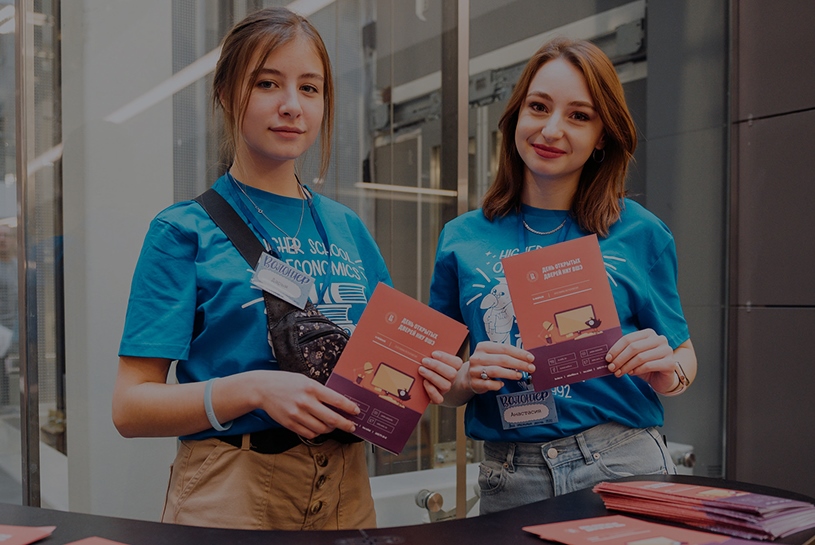Mission Achievable: The University as an Agent of Social Development

Today, universities strive to go beyond the traditional areas of activity that characterize institutions of higher learning and research, taking active roles in national and social development. Valeria Kasamara, HSE University Vice Rector and the Director of the Institute for Applied Political Studies, spoke about this during an open online lecture, ‘The Third Mission: The Experience of HSE University’.
In international practice, a university’s third mission refers to the implementation of projects that are aimed at the betterment of society. On November 5, HSE Vice Rector Valeria Kasamara spoke about HSE’s experience in conducting volunteer and charity events, providing social support for students, working with high school students and applicants, implementing lifelong education programmes, and sharing the university’s own intellectual and technological developments with society at large. In addition, she discussed the University’s current restructuring with regard to its third mission, as well preparations underway for producing the country’s first university report on the realization of activities in this area.
The ‘third mission’ has garnered great interest—not simply in terms of its implementation, but, more significantly, in terms of the concept itself, its essence. From the very beginning, it was clear that the idea had profound potential, but it was nonetheless only perceived in terms of its potential societal impact. However, the concept is in fact much broader, and HSE has begun changing its approaches to the concept, said the vice rector. ‘When we started an “internal audit” of our approaches, we saw that our approach had been incorrect, because the social mission is merely one of six areas contained within the third mission of universities. There are many other areas,’ she said. Moreover, a university’s third mission does not stand in isolation from its other two missions of education and research. The three are closely interconnected.

Vice Rector Kasamara noted that the ‘University and Society’ section of the 2030 HSE University Development Programme provides a roadmap for realizing the University’s third mission. The mission includes key projects and a series of administrative decisions. In addition, for the first time in Russia, the University has prepared a separate report detailing its activities in this area. The report includes projects such as the social mission, Service Learning, environmental initiatives, NGO partnerships and social communications, university partnerships, and more.
The presentation of the report will coincide with the Strong Ideas for a New Time Forum, which will take place on November 11-13 in Moscow. The Forum is co-organized by the Agency for Strategic Initiatives (ASI) and the Roscongress Foundation.
HSE University has established the HSE Third Mission Centre, which will serve as an analytical and methodological centre at the University. ‘Moreover, as part of the third mission, we are developing a separate online platform, since we want to increase the number of HSE employees involved in it. This is achievable if we have the appropriate tools,’ notes Valeria Kasamara. Thus, a special entry point will be created on the university website, where it will be possible to read about each project. A mobile application will be released that will allow employees and students to get involved with the third mission projects, and a special section will be added to staff and students’ online HSE accounts. The overall goal is to establish the third mission as one of the most significant areas of activity for staff and students.
To begin with, it was also decided to conduct informational outreach, since it is difficult to join a project that you don’t know anything about. A study will be launched in cooperation with the Centre for Institutional Research to understand how staff perceive the third mission. In addition, the ‘University Partnership’ section of the development strategy establishes the opportunity for colleagues from different universities to complete internships with HSE. Currently, a second cohort of interns is completing the programme.
Valeria Kasamara spoke in detail about all of HSE University’s third mission projects. Responding to a comment in the chat panel of the online lecture event that HSE is gaining a monopoly not only in the first two missions, but now in all three, she remarked, ‘We absolutely do not want to become a monopolist.’
‘When we were preparing for the ASI forum, we initially formulated the idea as “the third mission of universities”. As discussions progressed further, the idea became “universities as institutions of development”,’ the vice rector explained. ‘It is fundamentally important for us that universities are perceived in this way, because today we have the huge potential of a university network, which serves as the driver of many activities in the regions and can actually unite the entire country.’
Currently, a total of 150 integrated development projects developed by HSE University for Russia’s regions are being implemented. ‘We want to share our experience and learn from experience’ said Vice Rector Kasamara, underscoring the importance of universities working to become points of regional growth.

